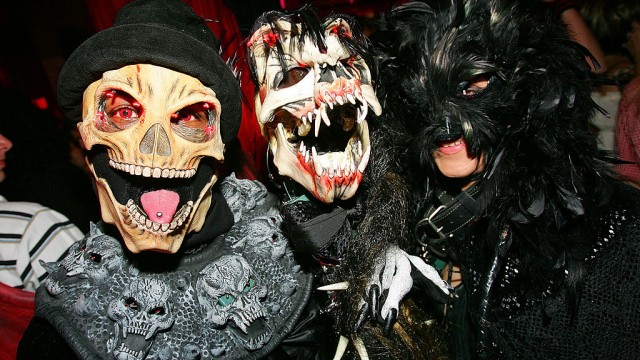
Sure you want to get some laughs, but before you squeeze into your Sexy Donald or Sexy Hillary getup, ask yourself: Is my Halloween costume offensive?
Halloween gives those of us who aren’t comedians a taste of the tightrope walk we expect them to endure: We want them to be edgy enough to make us laugh, but if they’re a tad too edgy we’ll pound them on social media.
Comedians as varied as Gilbert Gottfried and Jen Kirkman have been targeted for blacklisting by the outrage mob. Even the sweetly inoffensive Ellen Degeneres recently felt the heat of the humorless. Our addiction to outrage can have a chilling effect not just on comedy, but on free speech and the wild and weird process that fuels human progress.
Thanks goodness for universities, those bulwarks against narrow mindedness.
The modern free speech movement erupted on the campus of UC Berkeley in the 1960s, the same time that comedian Lenny Bruce was fleeing to campuses to perform. Bruce’s racy act challenged conventional thinking on issues ranging from sex to religion, and cops arrested him repeatedly because he refused to fall in line. The open-minded campus scene offered Bruce a rare respite from censorship. How times have changed.
If Lenny were alive today, he could forget about performing comedy on the modern college campus. He’d be lucky if administrators would allow him to don the Halloween costume of his choice.
“Is your costume offensive?”
Administrators at Wesleyan University plastered the campus with posters posing that question and offering guidelines to help students make the “right” decision. “Unsure if your costume might be offensive?” Good news! The poster lists contact information for six administrators willing to offer guidance.
Rhodes College makes it clear that offensive costumes “will not be tolerated.” And how can good-hearted students be sure to avoid causing offense? Well, turns out they can’t because offendedness is a subjective concept.
Yet universities police even unintentional forms of harassment. UCLA temporarily suspended a sorority and fraternity because of allegations that some attendees wore blackface at a “Kanye Western”-themed party. There was no evidence of blackface, but several students dressed as miners with sooty checks in a dual reference to the 1849 gold rush and Kanye West’s song “Gold Digger.”
The Foundation for Individual Rights in Education reports that the “overwhelming majority” of colleges deny students basic free-speech rights. Today speech codes are commonplace and they punish students for everything from telling jokes to committing the crime of “inappropriately directed laughter.”
Instead of being taught that the messy clash of ideas generates knowledge, generations of students have learned they can silence ideas they don’t like simply by saying they’re offended. Too many of us leave the cocoon of college and continue to parade our offendedness in the real world.
And at first glance cracking down on offensive or hateful speech may seem like progress. Governments from Canada to Europe fine and imprison those found guilty of so-called hate speech crimes, and the “everyone else is doing it!” argument could pressure the United States to follow suit. Indeed today more Americans support hate speech laws than oppose them.
But from civil rights to gay rights, censoring offensive or hateful ideas doesn’t lead to progress. “There is only one way to counter bad ideas and it is with good ideas,” says Jonathan Rauch, Brookings Institution scholar and author of Kindly Inquisitors: The New Attacks on Free Thought. “You cannot do that unless you’re able to confront the bad ideas.”
Although he is also a gay-rights activist, Rauch does not even wish to censor the infamous Westboro Baptist Church, whose members protest public events armed with signs and slurs like “Fags are beasts.”
“I am actually grateful that the Westboro Baptist Church exists,” says Rauch. “They use their voices to demonstrate how pitiable they are and why gay people are making the better argument.”
“Hate speech” laws merely give more power to the powerful.
Whether it’s on campus or off, the people who get to define what’s hateful are the people who are in charge. Cops and prosecutors pounced on Lenny Bruce because his act offended conservative sensibilities (Christianity and the Catholic Church were frequent targets).
If hate speech laws had been in effect in the 60s, Bruce would have been hassled even more intensely. If they were adopted today, they would likely be used to punish speech that offends liberals. A President Trump would employ such laws to punish certain people, while a President Clinton would use them to punish other people.
A culture of censorship expands when the people allow it to expand. But we can all do our part to stand up for free expression. It involves everything from supporting open-minded colleges to refusing to be cowed away from that clever Halloween costume.




























